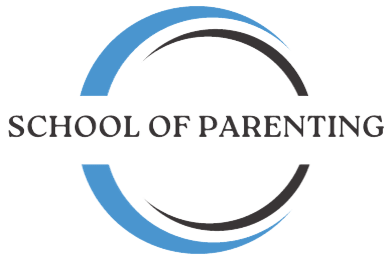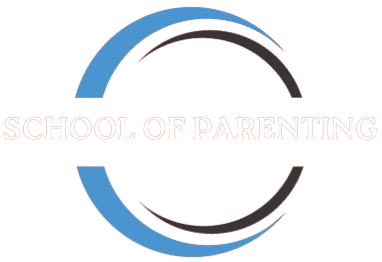
I remember a close friend, Chisom, who was initially overwhelmed by the idea of breastfeeding. She had heard countless myths from her family and friends that made her anxious, would she produce enough milk? Would her baby get too attached? Would it affect her relationship with her partner?
But when her baby was born, things started to fall into place. With patience and support from people around her, Chisom discovered that breastfeeding was not only possible but also deeply rewarding and fulfilling for both her and her baby. Her story reminds us that every mothers journey is unique and, sometimes, just starting is the hardest part.
When it comes to parenting, every decision feels significant, especially those surrounding breastfeeding.
However, it’s important to remember that no single choice defines your journey or your child’s future. In this discussion, I aim to share insights about breastfeeding while promoting a culture of empathy and respect for each family’s unique choices.
Disclaimer
I am not a healthcare professional, and for any medical or healthcare-related advice, I encourage you to consult with a licensed professional. The information shared here is intended to spark understanding, not judgment. Breastfeeding is a deeply personal decision, and this conversation is meant to foster respectful dialogue without making anyone feel ashamed.
It’s also essential to note that breastfeeding does not determine or boost your child’s IQ—many factors influence that, and no single approach guarantees a particular outcome.
Why Do We Need to Talk About Breastmilk and Breastfeeding
According to UNICEF, the UK has one of the lowest breastfeeding rates globally, with only 34% of babies still receiving breast milk at six months, compared to 62% in Sweden (www.unicef.org.uk).
Research from Swansea University reveals that 40% of women who stop breastfeeding by six weeks do so due to feeling judged, discouraged, or shamed in public (www.swansea.ac.uk). In Nigeria, a recent national survey found that only 29% of infants under six months are exclusively breastfed.
Let’s Take a Look at Countries with High Rates of Breastfeeding Rates Around the Globe
According to data collected by UNICEF, South Asian countries have the highest exclusive breastfeeding rates for babies up to five months old, 57 percent. At 55 percent, Eastern and Southern Africa have the second-highest breastfeeding rates, followed by Eastern Europe and Central Asia (41 percent), Latin America and the Caribbean (37 percent), and West and Central Africa (37 percent).
One in three newborns (33 %) in the Middle East and North Africa are exclusively breastfed.
Breastfeeding Myths and Misconceptions
There are many wrong believes people have about breastfeeding, often based on old beliefs or incorrect information. However, with these 7 myths, we’ll clear things up to convince you and support mothers in their unique breastfeeding journey.

1: Beyond the Pump, factors affecting milk supply
Almost all mothers produce the right amount of milk for their babies. Breastmilk production is determined by how well the baby is latched on to the breast, the frequency of breastfeeding, and how well the baby is removing milk with each feeding. Breastfeeding isn’t a ‘one woman’ job and mothers need support. Support like ongoing breastfeeding guidance from healthcare providers, help at home, and staying healthy by eating and drinking well.
2: Babies who have been breastfed are clingy.
All babies are different. Some are clingy and some are not, no matter how they are fed , temperament play a role here. Breastfeeding provides not only the best nutrition for infants but is also important for their developing brain. Breastfed babies are held a lot, and because of this, breastfeeding has been shown to enhance bonding with their mother.
3: Back to Work, Back to Breastfeeding, It’s Possible.
Many mothers continue breastfeeding after going back to work. First, check the policies in your country and your own workplace. If you have the right to time and a place to breastfeed during working hours, you may be able to go home and breastfeed, ask a family member or friend to bring your baby to you, or express your milk and take it home. If you don’t have the option to breastfeed during working hours, look for moments during the day to express your milk and then feed your baby directly when you are at home. If you decide to give your baby a breastmilk substitute for some feeds, it’s still very good to continue breastfeeding whenever you are with your baby.
- The Magic of Breast Milk.
Breast milk protects the baby against infection, and therefore, washing the nipples before each feed is unnecessary. When babies are born, they are already very familiar with their own mother’s smells and sounds. The nipples produce a substance that the baby smells and has ‘good bacteria’ that help build babies’ own healthy immune systems for life.
5: A Lifelong Bond Journey
Breastfeeding can be made difficult if women do not receive the help they need. A poor start can make breastfeeding difficult but can be overcome.
6: Formula vs. Breast Milk
This is just like comparing natural with artificial. The same claim was made in 1900 and before. Modern formulas are only superficially similar to breast milk. Formulas contain no antibodies, no living cells, no enzymes, and no hormones. They contain much more aluminum, manganese, cadmium, and iron than breast milk. They contain significantly more protein than breast milk. The proteins and fats are fundamentally different from those in breast milk. Formulas do not vary from the beginning of the feed to the end of the feed, or from day 1 to day 7 to day 30, or from woman to woman, or from baby to baby.
7: Freedom in Every Feed.
A baby can be breastfed anywhere, anytime, and thus breastfeeding is liberating for mothers. Again, it is always at the right temperature, with no need to carry around bottles or formula or worry about how much to take with you. All what you need is get a comfortable position, get your breast out and breastfeed your bundle of joy.

Benefits of Breastmilk
- It meets all your baby’s nutritional needs.
Breastfeeding helps to protect your baby from ear infections, diarrhea, pneumonia, and other childhood diseases, e.g., chicken pox, measles, asthma, anemia, polio, etc. - Breastfeeding helps protect mothers from diabetes, breast and ovarian cancers, heart disease, and postpartum depression. According to Hareem Sumbul, a certified lactation counselor, breastfeeding stimulates the production of oxytocin, a happiness hormone that helps calm mothers. But, “in case breastfeeding does not go as planned or if there are any hurdles in breastfeeding which cause stress, it can even contribute to kicking off postpartum depression,” she said.
- First milk, also known as colostrum, is rich in antibodies and gives newborns an immunity boost while their immune systems are still developing.
- It protects against allergies, sickness, and obesity.
- It aids digestion and prevents constipation.
- It can build a strong emotional bond between you and your baby.
- Breastmilk is available for your baby whenever your baby needs it.
- It’s free. Imagine the cost of formula milk that you have to buy frequently. Unlike breastmilk, which you get freely, all you need to do is eat well and drink lots of fluids.

Let’s See the Magic That Happens in The First 30 Days of Breastfeeding
- You and your baby get to know each other.
- Your baby gets off to a new start.
- Your body learns to make enough milk.
- Your body learns to nurse well.
- Breastfeeding Challenges
- It’s too stressful.
- My partner will feel left out, your focus and attention will be on your bundle of joy.
- I am insecure and have no confidence in myself.
- A baby sucking my nipple will be too irritating for me.
- My boobs will sag, and my partner won’t love me, different factors contribute to breast sagging, but breastfeeding might not be one of them. If you get pregnant and decide not to breastfeed, your breast might also sag. You know why? Because it results from the expansion of the ligaments that support your breast due to increased weight and even when you’re done breastfeeding, your breast will gradually assume shape as the ligament returns to its original shape. What you can do in this situation is to stay away from smoking, then drink plenty of water, and maintain a healthy diet. For me, this is what I tell mothers, “A man that will love you will love you genuinely whether your breasts sag or not”. Accept yourself for who you are. Remember, you do not expect your body to still remain the same even after giving birth. There will always be body changes. Also, this shouldn’t be a concern compared to the foundation you’re laying for your child to thrive in life.
- If it’s only me who can soothe the baby, it will be too much for me. The truth is fear of burnout is real, I’d encourage you to seek help from your partner, family, and friends.
- Will I still be able to breastfeed if I’m worried about money? Ask for help—food bank, friends, families, communities, etc.
- My baby bites. It’s most likely your baby is distracted, teething, want your attention, or want more milk, talk to the child or tap the child.
- My milk supply is low. This could be as a result of a hormonal issue, diabetes, or hypertension or it could be that your baby is not positioning well. Seek help.
- I don’t want to stay awake at odd hours—the truth is, waking up at night is part of their development for attachment with their mothers, this is absolutely normal, as time goes on, they’ll gradually learn to sleep the entire night.
- My baby cries too much.
- My nipples are too small.
- My baby is too demanding.
- My partner is not supportive, have a conversation with him and express your feelings.

How Can Your Partner Support You
The truth is, men do not read minds. Until you, as a mother, tell them what you want and how you want to be loved.
- For some mothers, all they need is someone telling them how great they’re doing with breastfeeding their baby.
- For some, it’s just as little as a cup of tea, preparing lunch, or breakfast for them while they breastfeed.
- Others may just want to chat while they breastfeed.
- Some may want their back rubbed or a hand around their shoulder while breastfeeding the baby.
- Others may want help preparing dinner, cleaning up, or sorting out washed clothes.
Understanding how they want to be loved and loving them that way will give them inner strength to be able to breastfeed the baby that both of you brought into the world together.
The question I usually get from mothers is “when should I stop breastfeeding”?
Weaning is a personal choice, and the best time is when you feel ready. Pay attention to signs like your baby’s reduced interest in breastfeeding, increased intake of solid foods, and your own emotional readiness.

However, there are signs you should look out for to know your baby is ready to wean
- The baby’s milk intake has reduced.
- The baby is eating enough of solid food.
- The baby seems less interested in breastfeeding and is distracted when you bring them close.
- You feel emotionally ready to wean.
- You feel your body is tired and stressed.
- You’re physically ready to wean.
Breastfeeding is a beautiful and natural part of motherhood, but every journey is unique. Whether you choose to breastfeed or not, it doesn’t define your worth as a mother. Embrace and celebrate your choice, and let’s break the silence, because we’re all in this together, working towards giving every child the healthiest start in life.
To young mothers
Remember, there’s no one “right” way to be a parent. Trust your instincts, lean on your support system, and know that it’s okay to ask for help. Your love and care are what truly matter. You’ve got this!
Above all, celebrate you. You don’t need to wait for anyone else’s approval to honor the incredible journey you’re on. Motherhood is about strength, love, and choices, so celebrate your own, every step of the way.


